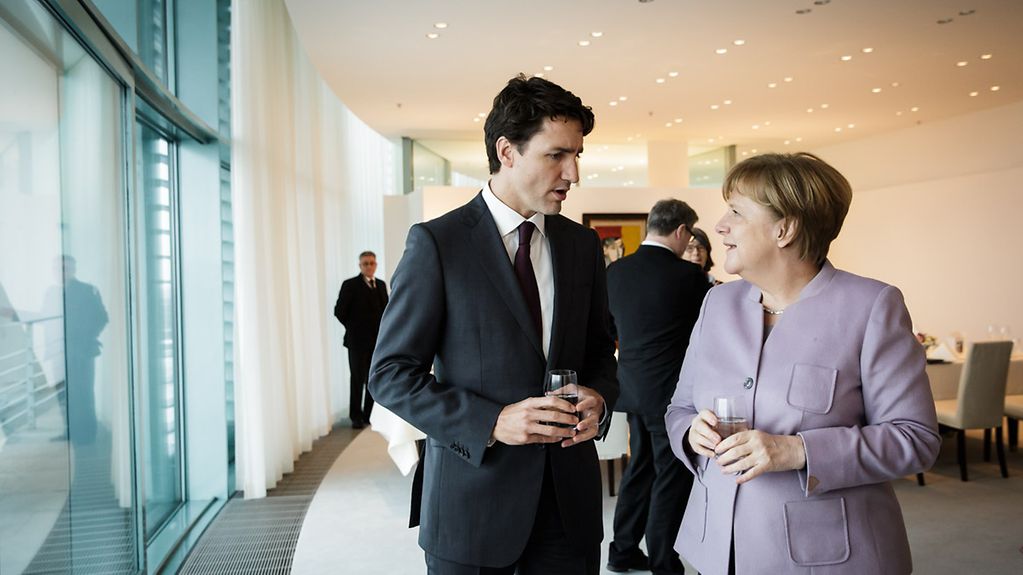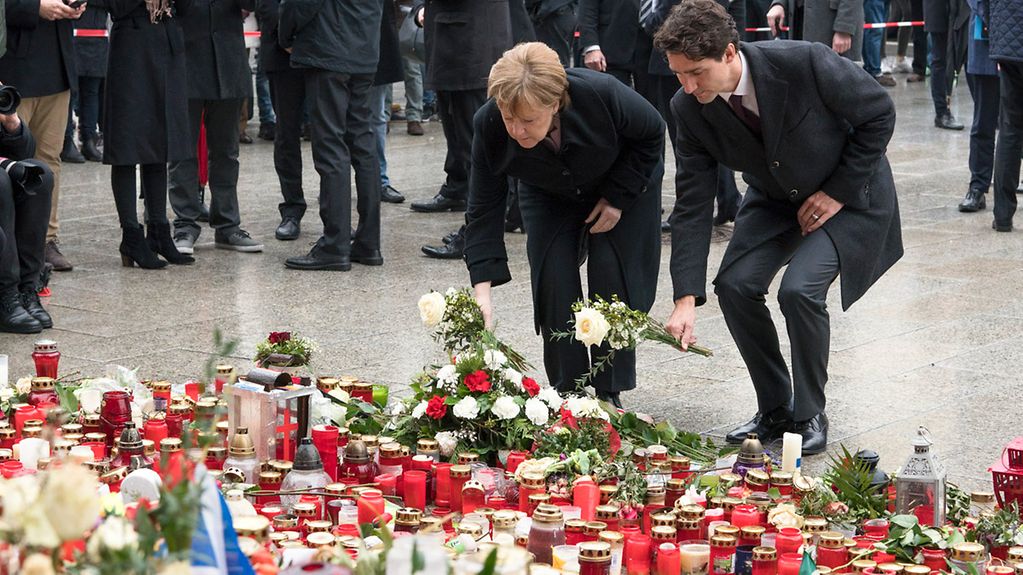Canada's Prime Minister in Berlin
Canada and Germany are close partners in foreign policy; both countries are present in NATO conflict regions. Following talks with Canada's Prime Minister, Chancellor Merkel said they had common beliefs and views. Both also welcomed the conclusion of the CETA agreement.
2 min reading time

Merkel and Trudeau want to promote youth exchanges between Germany and Canada
Photo: Bundesregierung/Steins
After her meeting with Canadian Prime Minister Justin Trudeau, Federal Chancellor Angela Merkel said she and her guest had also discussed the G20 agenda, adding that Canada is a very active partner in the preparation of the conference in Hamburg.
Similar views on foreign and refugee policy
With regard to the current discussion among NATO partners on defence expenditures, the Chancellor referred to the decisions made in Wales, which she said were supported by Germany. This commitment has not changed. Germany, for example, has increased its defence budget by eight percent this year and is aware of its responsibility. All Alliance partners should be aware of the mutual value of NATO, she stressed.
The Chancellor thanked Canada for its commitment regarding refugees. Canada is continually receiving refugees, from civil war regions such as Syria, for example. Germany is very grateful when someone sees this as a worldwide task, Merkel said.
CETA agreement sets standards
The Chancellor also thanked Canada for its commitment to bringing the CETA free trade agreement to a close. The CETA agreement between the EU and Canada has a new quality; it sets new standards for future agreements. It is not just about tariffs, but also about the conditions of consumer protection.
Trade in goods between the two countries remains below the potential of their economies. In 2015, Germany's exports to Canada were worth EUR 9.9 billion, EUR 1.3 billion more than in the previous year. Imports from Canada totaled EUR 4.0 billion in 2015, an increase of EUR 0.6 billion compared to the previous year. Germany is for Canada the fifth most important exporter of goods and the eighth most important importer of goods. Germany’s main exports to Canada are motor vehicles and vehicle parts and machinery. Its principal imports from Canada are raw materials.
Developing youth exchanges
Canada and Germany wish to foster youth exchanges. The Foreign Ministers will review the areas in which young people could be better brought together and enabled to experience the other country. A focus of German foreign cultural and education policy in Canada is promoting the German language at schools and universities, as well as through scholarships, exchange, travel and awards programmes. The German language schools, the National Heritage Schools – at one time also known as Saturday Schools – receive financial support as well. Canada has two full-time German schools: the Alexander von Humboldt School in Montreal and the German School in Toronto.

Merkel and Trudeau at Breitscheidplatz
Photo: Bundesregierung/Plambeck
Following the joint press conference, Chancellor Merkel and Prime Minister Trudeau visited Breitscheidplatz in Berlin, where they paid their respects to the victims of the terrorist attack carried out with a truck last December.